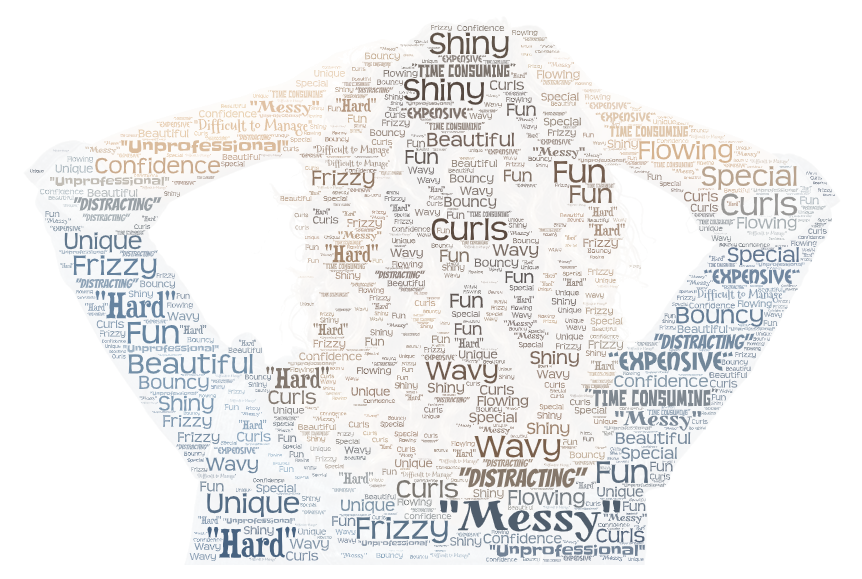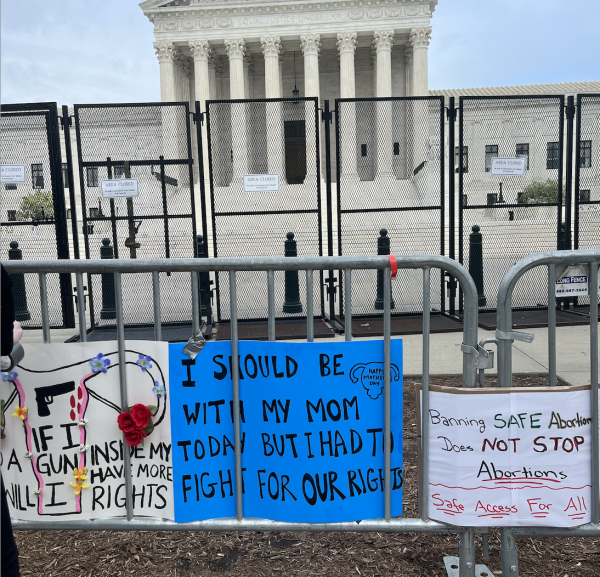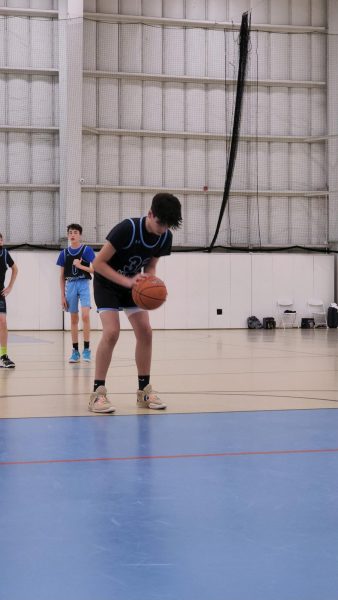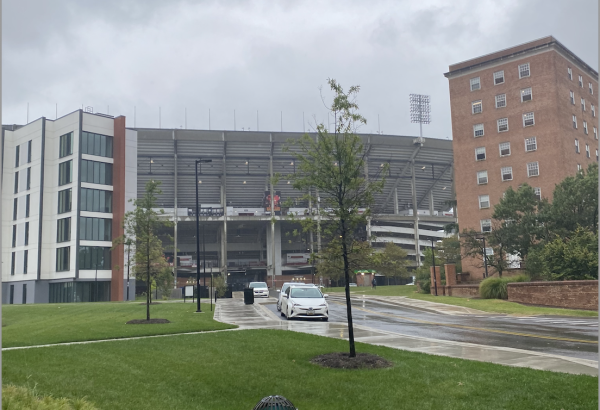Hair doesn’t define professionalism
November 11, 2020
If you know me, you know how much I care about my hair. And if you’ve ever talked to me about it, you know how much time and money I put into it. Yet, for the amount of energy and product I put into trying to make my hair look good, I never really wore it down that often. But in recent days, I have started embracing my unique curly hair and I couldn’t be happier that it not only looks good but that it is legally acceptable in a professional environment.
To say that I am passionate about my hair is an understatement. It used to be about making it not frizzy and making sure my brothers and classmates didn’t touch it. But now it’s more about me wondering why I spent years of my life and hundreds of dollars trying to tame something that clearly just wants to run wild.
Upon arriving at school after trying a new hair product, I was greeted with multiple comments from peers complimenting my naturally flowing curls, wondering how I got my curls to flow like that and why I did it during the pandemic when I rarely see people.
As I was researching new products, I came across a list made by members of the Natural Hair Movement. The Natural Hair Movement is a movement that encourages Black and African American women to leave their hair natural in the professional world.
The movement began in the 1960s and has recently been surfacing in the media as a result of discrimination in the workplace towards women who do not want to have to straighten or chemically impair their hair to fit the corporate world’s definition of beauty and professionalism.
The social and professional pressures of making a woman’s hair look more Eurocentric are the root of this problem and are the reason the Equal Employment Opportunity Commission is constantly filing cases on behalf of working women as they are discriminated against, criticized and even punished for not straightening or drastically changing their hair.
When the Civil Rights Act was signed in 1964, it “ended segregation in public places and banned employment discrimination.” We all know that this Act banned workplace discrimination based on skin color, but what wasn’t highlighted was that discrimination based on hairstyle is still counted as discrimination under the Act. Yet, hairstyle discrimination is still a thing countless Black and African American women face every single day, though it is officially banned in states such as California and New York, and even in Montgomery County.
Just last October, Montgomery County passed a bill that outlaws any form of hair discrimination in the workplace. “Braids, locks, Afros, curls and twists” are just some of the hairstyles included. This piece of legislation allows for those who face discrimination for their hair to pursue a penalty of up to $5,000.
Though my curly hair runs in my Polish, Italian and Persian ancestry, I have been in situations throughout school, shadowing and interning where adults in the workplace have commented on my hair and referred to it as “distracting.” It truly astounded me that I could be in a completely professional outfit and be stopped mid-speech by a supervisor to tell me that my hair was distracting her while I spoke.
Even as a caucasian female, I have been on the receiving end of these unreasonable and incorrect comments about my hair, and it pains me to think of the Black women and girls who are forced to think about this every day, despite the fact that their hair is not and will never be an indication of their skills and talents.
As my curls bounce around my shoulders, I can’t help but smile at how far I’ve come from crying every time I’d comb through my knotted hair. I am glad to see that my natural curls are becoming more acceptable in professional environments, but that does not change the fact that for many Black women, rocking their natural hair at work is simply not an option.
Not only is straight hair deemed more professional, but Black women also have to face racism that is thinly veiled behind a concern for professionalism. As a proud wearer of curls, I can surely say that the way my hair is has no effect on my ability to be professional, and no one, regardless of race, should ever be told otherwise.


















